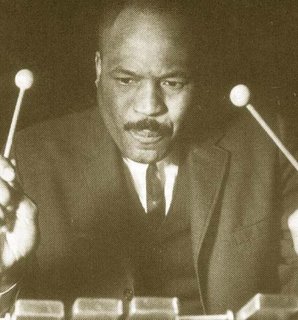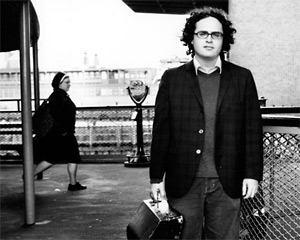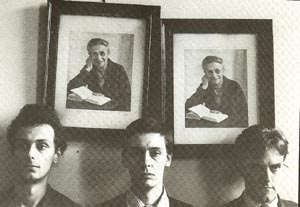
have returned to the city and there is a flurry of activity, or at least it feels that way. am at present looking for a new roommate and pinning down details for an upcoming Stay FKD show that will feature such fine bands as Baltimore's Yukon, who i raved about below, and Brooklyn's Animal. this will be for fans of the math rock and details are forthcoming.
still sorting through all the media that flew my way in Kansas City and that was a lot. finally managed to get a look at the latest book (number two) from young Kansan poet Ben Lerner who is a friend of a friend, and i was immediately very, very psyched. this book is called "Angle of Yaw" and was named a National Book Award Finalist. (a "yaw" is, according to Dictionary.com, "a movement of deviation from a direct course, as of a ship"--so i guess it's something like a list or a swerve or a lean.)
forgive my generalization, but allow me to tell you something about yourself: you do not read new poetry, except for perhaps the occasional bit of verse in "The New Yorker." hey, i don't either; it's nothing to be ashamed of. it's just something that reading Lerner made me think about. you also don't attend dance performances, or theater, or readings of any sort. your main sources of entertainment/culture are movies and live music. i'm describing myself, but i'm also describing a lot of people i know. i'm not criticizing anyone; all i'm saying is that there seems to be a hierarchy of the arts. (if you're in grad school or something like that, you don't count, b/c you have a lot more time for media intake.)
now you may not read poetry, or go hear people read it, but you may very well read novels. for some reason, novels are still relevant. as are timely nonfiction books. why don't people read poetry? i don't know, really. how are they supposed to find out about it, for one? people don't read new poetry unless they are poets and people don't listen to new jazz unless they are nerds like me or are jazz musicians.
i say all this by way of nominating Ben Lerner as a poet that people might actually, god forbid, read. like young people, people like you or me. there are a few reasons for this, but i guess the most concise way i could put it is that Ben Lerner's poetry makes sense. god forbid, right?
of course it's experimental, but you can read many of his poems once and get a very charming, concrete, witty idea. try this one, one of the prose poems that make up part two of "Angle of Yaw":
"If it hangs from the wall, it's a painting. If it rests on the floor, it's a sculpture. If it's very big or very small, it's conceptual. If it forms part of the wall, if it forms part of the floor, it's architecture. If you have to buy a ticket, it's modern. If you are already inside it and you have to pay to get out, it's more modern. If you can be inside it without paying, it's a trap. If it moves, it's outmoded. If you have to look up, it's religious. If you have to look down, it's realistic. If it's been sold, it's site-specific. If, in order to see it, you have to pass through a metal detector, it's public."
i guess a lot of people wouldn't think of this as a poem. it's not in verse, for one. but more importantly, i don't think people are used to reading poetry, especially after the advent of modernism and it's after-effect of fashionable obscurity, and having it make immediate sense. it's sort of startling in fact. one of the reasons people like to listen to music so much is that it acts on you whether you work to figure it out or not. people respond to artworks that make statements, that are gettable--more importantly, they respond to artworks that they can agree or disagree with.
in that way, the above thing is more like a collection of aphorisms. pretty much anyone could grasp what Lerner is saying in the above work, and pretty much anyone could conceivably disagree with any one of these aphoristic statements. they're theses as much as anything else, arguments. it's a refreshing thing for a poem to be concrete enough to disgree with, rather than simply having to say, abstractly, "i like it" or "i don't like it."
also, of course, it's funny as hell, in a droll way. does literature have to be funny to be popular among the young urban intelligentsia? the McSweeney's hegemony would seem to suggest that, yes, it does have to be funny, sarcastic, postmodern, wry, droll, self-referential, ironic, etc. etc. etc. humor is huge because it draws people in. for some reason, people seem to like their music (indie rock, namely, which is the prevailing "genre" among the young, hip music-consuming public) very, very serious. it's ok to be really serious, like Joanna Newsom or TV on the Radio or who have you, if you're singing, but if you're writing, you'd better be funny, witty, etc. this is just a sense i have.
so Ben Lerner is funny. hilarious in fact. i would in no way peg him as related to the McSweeney's cadre but i think his work has the potential to thrive in a world where, for better or worse, they seem to make up the prevailing paradigm--if that makes any sense. check this one out, also from part two of "Angle of Yaw":
"Child actors are not children, that much we know. Their reputation for viciousness is, by all accounts, deserved. Napoleon and Liszt were child actors. In situation comedies, child actors are black. Some child actors have never been off-camera. If you build a set and start filming, a child actor will come downstairs. Some doctors believe it is the constant surveillance that stunts the growth of the child actor, the pressure of the viewing public's gaze, while in fact a child actor off-camera is like a fish out of water. He cannot breathe."
i love the matter-of-factness of the tone. each of these poems is like a little essay--you come away with a concept. it may be largely a witticism, but it's still a wonderfully concrete idea. it is no exaggeration to say i laughed out loud reading "If you build a set and start filming, a child actor will come downstairs." how great is that?
you read Lerner because you want to, not because you feel lofty doing so. you could read "Angle of Yaw" on the subway. these aren't poems; they're just ideas and since there's no such format as "the briefly asserted idea," we have to call them poems. i honestly feel like Ben Lerner could be read. by actual people. and he is a young poet. this, to me, seems like a big deal.
i know you don't read new poetry. i don't either. but i read Ben Lerner and i think you might enjoy doing the same. buy "Angle of Yaw" here.
*****
John Fahey is still where it is proverbially at. i'm fixating on his longer works, the total-music fantasias that were starting to really cook in the late '60s and early '70s.
i really heartily recommend "America," recorded in 1971. weirdly, huge chunks--and good chunks--of this album went unreleased when Fahey originally put it out, but the Takoma/Fantasy reissue restores it to a glorious 79 minutes. the first half of the record is cool but a little underwhelming. what you'll want to do is listen to the album in reverse, or better yet, just skip to the awesome 15-minute "Voice of the Turtle" near the end. it's a gorgeous, savage revery, and coherent all the way through. Fahey could ramble on his longer tracks and some of the lengthier early pieces--such as "The Transcendental Waterfall," which appears on the reissue of "The Legend of Blind Joe Death" and the title track of "The Great San Bernardino Birthday Party"--are sorta rambling and only contain a smallish kernel of good material. but "Voice of the Turtle" and the track right before it, "Mark 1:15" (which contains this refrain that reminds me of Queensryche's "Silent Lucidity" in the best possible way) are both seriously deep and awe-inspiring and worthy of their epic lengths.
as is "When the Fire and the Rose Are One," the first track on the obscure 1973 release "Fare Forward Voyagers." this is an absolutely gorgeous record and completely unavailable (unless you want to pay $70 to some joker on Amazon). i downloaded it and i suggest you do the same. the aforementioned track is this lengthy multipart thing with a strong Indian vibe. dunno if it's authentic, but it sure is effective.
"Fare Forward Voyagers" is dedicated to a swami/guru dude of Fahey's and in a 1994 interview, the maestro had this to say: "Probably the primary reason I got involved with [Yogaville West] was that I fell in love with Swami Satchidananda’s secretary Shanti Norris. So I was doing benefits for them, hoping to score points with her, and along the way I learned a lot of hatha yoga." gotta love this guy. anyway, this is a seriously deep album; wish it was more around/known/circulated. tracks are too long to post unfortunately.
but i will give you something completely different: a track by Scorn, this weird so-called "ambient dub" project spearheaded by Mick Harris, original drummer for Napalm Death and also of Painkiller. it's awesomely bassy and atmospheric electronic beat music; kinda tries real hard to be spooky, but it's lovable that way. i loved the shit out of Scorn's 1994 disc "Evanescence" (this one too is outta print) in high school and it still sounds pretty damn rad to me. for the record, it has absolutely nothing to do with John Fahey and/or Ben Lerner.
Scorn - "Silver Rain Fell"














